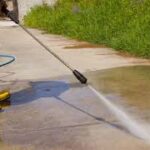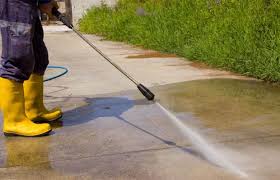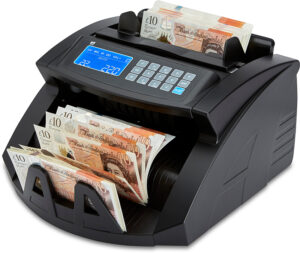
Why Junk Car Removal is Good for the Environment
Auto recycling centers have to abide by strict regulations which make their processes ethical and environmentally friendly.
So, when you scrap your car, you’re not only doing something that will benefit the environment directly but also contributing to a business which follows the same values as you.
You don’t have to worry about what your car is going to be used for. You can be safe in the knowledge that it will be in the hands of people who will put its materials to the best possible use because they’re obligated to.
Re-Use Scrap Metal
Your old, worn-out car may seem worthless to you, but it’s very valuable to a junk yard. This is because it has so much scrap metal that can be put to better use, and people will pay good money for it.
The manufacturing process for metals can be extremely harmful to the environment, using some of the Earth’s most limited resources, such as carbon and oil.
Re-using the scrap metal from your old car means that less of those resources need to be used up.
Around 14 million tons of steel is taken from scrapped cars every year, which is the equivalent of 12 million cards.
The use of that scrap metal saves around 85 million barrels of oil every year. That’s a huge environmental impact!
As well as steel, aluminum can be recycled from cars.
It’s found in the engine heads, transmission fluid cooler, and radiator, as well as other parts.
Cars also contain platinum group metals, which are especially valuable.
Dispose of Toxic Substances the Right Way
When you think of junk car removal and recycling, you usually only think of scrap metal and tires.
However, there are other substances in the vehicle which are just as important. These are in fluid form, and the average junk car contains between 5 and 10 gallons of them.
These liquids and chemicals that a car contains are toxic and therefore must be handled with great care.
That’s why a car should only be scrapped by someone who knows what they’re doing.
Examples of these substances include battery acid, antifreeze, brake fluid and power steering fluid, as well as others you may not have thought of, like mercury and sodium azide.
If these substances are disposed of in the wrong way, they could cause damage to the environment by contaminating soil and water and then killing plants and wildlife. They could also be harmful to humans, causing skin, eye and respiratory problems.
When you arrange for junk car removal, you know that the potentially harmful effects of these substances are being negated because they’ll be disposed of correctly.
Old cars often start to leak these dangerous fluids after a while, so this is a problem that should be dealt with as soon as possible.
Recycle Every Part Possible
When you think of junk car removal, you might just envision your car being crushed by a machine and thrown on a pile of metal.
In reality, it’s much more thorough than that.
Every single material from your car that can be recycled will be removed, separated and put to use.
That includes even the small things that you wouldn’t think of, like the floor mats, for example.
Once the car has been checked for parts, the wheels, tires, battery and catalytic converter will be removed. After that, all of the fluids will be drained from the vehicle and its inner systems and any smaller useful parts will be removed to be either sold on or reused. When everything has been taken out, the metal framework of the car will be crushed and compacted.
When all of these parts have been removed, your car will simply be a shell of scrap metal.
Avoid Landfills
As humans, we contribute more than enough to landfills already with our wasteful lifestyles.
Even when we’re constantly trying to reduce, reuse and recycle, we still end up sending lots of our waste to landfill sites, which have no other purpose than to poison the environment.
When the trash contained in landfills eventually decomposes, it can release greenhouse gases like methane into the air, and other harmful substances into the ground and water.
Junk car removal is a way of avoiding doing this kind of damage to the environment.
Instead of letting your car go to waste, send it to be scrapped and make use of its materials instead of letting them pollute the environment.
Cars are full of non-biodegradable materials, and it would be unethical to let them sit in a landfill site where they can pollute the soil and surrounding life.
If you care about your carbon footprint, junk car removal is the only sensible way to get rid of an old car.
Make Use of Old Tires
We’re used to seeing tires get thrown out. Old ones are left on the side of roads, and often, they are collected and burned, as they take up a lot of space and people don’t know how else to get rid of them.
The burning of rubber releases harmful chemicals into the air, damaging the environment. The deadly gases produced by tire fires include carbon monoxide, cyanide, and sulfur dioxide.
However, junk car removal companies know just how valuable they can be, and that there are plenty of ways to put old tires to use.
If your tires are salvageable, they can be reused for another car, even if they require a few repairs.
Don’t Throw Away Your Battery
Car batteries should not just be thrown out once the car they come from is scrapped.
First of all, they could be used in other vehicles. If not, simply leaving them could result in lead pollution.
For this reason, they can only be disposed of by certified recycling centers.
There are new incentives in place to put old car batteries to use, including one program that turns them into solar panels. Cash for cars Sydney
Reuse Spare Parts
Even if your car is so old and rundown that it doesn’t work anymore, it could be full of parts that are still perfectly good.
Batteries, axles, transmissions, radiators and the like will be checked over and if they look salvageable, they’ll be removed, tested and given a new lease of life by being reused in newer vehicles.
Your car won’t simply be thrown away. In a way, it will live on through other vehicles that make use of its old parts.


















